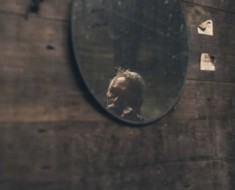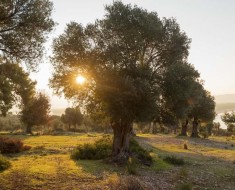
Jeremiah 23:1-6
Luke 23:33-43
The United Nations’ (UN) International Day for the Elimination of Violence against Women is an occasion for governments, international organizations and non-governmental organizations to raise public awareness of violence against women. It has been observed on November 25 each year since 2000. This is the Sunday before Advent which is part of our liturgical calendar as slowly we approach the miracle of the nativity. It’s also the festival of Christ the King. But -responding to the initiative of the United Nations, – it’s also ‘Women Against Violence Sunday’ . Let’s think about that.
1. I was once part of a Methodist Conference working party set up to mark the twentieth anniversary of women in our ministry. It was commissioned to research how the church had benefited from the change and how women were being treated.
It was an massive historical change and we learned some devastating examples of mistreatment, some of which went into our report. When it was presented to Conference it was met with some hostility, particularly by some women ministers, which rather spoiled our case. Eventually it was ‘received’ by Conference rather than’ adopted’, which meant that it was kicked into the grass and our recommendations ignored. In the course of the debate, a minister whom I knew and was a dear man, stood up and said ‘ ‘but friends, where would be without the ladies?’, and he was met by the Conference equivalent of a barracking.
Without realising it he had made our case for us. His words implied that the church is primarily male (‘where would we be?’) and that – brought out of the kitchen into the parlour – women were still a delightful addendum to the Christian community – very good at making cups of tea and raising money -rather than an integral and above all –equal – part of the body of Christ.
Of course he didn’t mean that, and whilst he continued to smile in his beatific way, he stumbled in confusion to the end of his statement. To put his case more strongly, without women there would be no church worth belonging to; in many cases there would be no local church at all. He was right – ‘we wouldn’t be here without them’!
Often only hinted at in the earliest scriptures and acknowledging the prejudices of St. Paul whose opinion on the place of women was hardly enlightened, it is clear from the inclusive teaching of Jesus and the fact that perhaps his closest friends and allies were women, that the equal place of women in the church is vital not only to ameliorate the legacy of dominant and powerful men in the Church’s long and chequered history, but as matter of simple justice.
It is part of the gospel message. Under God and in the name of Jesus, how women are treated in the church, as in the whole of society, should be a basic concern of Christian people. Gender differences are never enough to explain the different roles of men and women in the church, but there are special qualities of leadership, campaigning and pastoral care and perception that women often possess. In an excellent broadcast lecture recently, Mary Robinson argued that women if given equal status might do a better job of running the world than men have done.
2. Violence in our society is brought to our attention almost daily, and so often women are the victims. Violence is endemic in our culture. I pop into TV programmes sometimes – and frequently pop out as soon as I can. A basic theme of the soaps (apart from falling in and out of love and doing a lot of shouting and crying and getting pregnant) , are scenes of excessive, explicit and gory violence. Violence is part of the media diet on which we can so easily feed and which hides the real truth of the ill treatment of people by fictionalising it. And instead of making us more sensitive to the evil of violence, it threatens to make us immune to it.
There’s no fiction about enforced prostitution, about the brutality that goes on behind closed doors of some homes, about the laddish magazines that present women as sex objects, about religions that subordinate women to the control and violent intention of men. So much has been achieved for the emancipation of women in the last century – in the days through which many us have lived – but old attitudes take time to change and the Church must take its part in picturing a whole society and speaking for our truth that everyone has an equal contribution to make to it and no one should be cruelly used for the ugly satisfaction of others. No woman is.
I heard of a woman who had been abused and found sanctuary in a Women’s Refuge just near to where I lived and worked in East London. I went to see her to offer my friendship and that of the church, knocking on the door and waiting for some time for a response. I began to wonder if perhaps I was doing the wrong thing and very soon realised that I had. There was obvious unrest if not panic behind the door. This house was unused to visitors, and when at last the door was opened and I had to explain myself, was told I would be unable to see the person who had been referred to me. I was allowed entrance. On the mat. People in the hall and standing on the stairs,warily watched me My foolish innocence was shattered as I realised what was happening : I was a man. Any man was not only unwelcome but regarded as a threat to this protected house. Having been given entrance, I was asked at once to leave.
3. In 1960 three sisters – Patria, Maria Teresa and Minerva Mirabel (political activists in the Dominican Republic) were assassinated in a car ‘accident’ for their involvement in efforts to overthrow the fascist government of Rafael Trujillo. The Mirabel sisters quickly became symbols of dignity and inspiration. In July 1981 women from across Latin America came together. Appalled by the extent and diversity of violence against women, they agreed to hold an annual day of protest, and they decided to adopt 25th November, the date on which the sisters were killed, and so International Day Against Violence to Women was born. After the brutal mass shooting of 14 female students n 1991 a group of men in the University of Montreal set up the first White Ribbon Campaign which is now associated with November 25th.
We need to be positive and clear about where we stand. Nothing much happens for justice without effort. Human beings in a rut can’t be brought to another place without shock and risk. Over the years the women of our church for example have not just said child prostitution is morally reprehensible , they have consistently (all of us supporting them) campaigned against such evils. You can’t hide your conscience under wraps in this world, you have at some point to get up and shout. It may not be our natural way, for there is a quietism about the church today as it worries about its future, but it is the way of the Cross and the way to a resurrection.
‘They say you are a King’, said Pilate, the man with total authority and power , as Jesus stood before him – already bearing on his body the marks of political and religious violence. But out of his pain and humiliation Jesus said, ‘my kingdom is not like yours, not of this world at all, but rather one where truth, life and right relationships are valued and nurtured’. And that’s where we belong and a way of life and being for which we are answerable. Choosing weapons to fight violence is not easy. Using those very words – ‘fight’ and ‘weapons’ emphasises it. The Christian way of persuasion is not by force at all but by love. We are reminded in the reading from St Luke that the ultimate act of violence against God is the death of Jesus.
4. Justice for everyone is a Christian priority : release and new life for the victimised and punishment for the violators. But our ultimate goal is peace between people and peace with God. To be a campaigner and a peace-maker at the same time takes courage and sensitivity. Our reading from Jeremiah and Luke point us in that direction. Jesus from the Cross – ‘forgive them for they don’t know what they are doing’. Someone being violent to a woman may just be wicked or more likely is ignorant, socially, morally ignorant, and he – or she – has to be rebuked, stopped, but also forgiven.
Jeremiah has harsh words for shepherds who destroy and scatter the sheep but, he says, the Lord has another way and will raise up shepherds who will do the job properly and the sheep will no longer be afraid or go missing. And we‘re like shepherds – followers of the Great Shepherd himself – caring for and nurturing the lost and the harmed, and speaking for peace between victim and violator. Recognising the seeds of violence which are in all of us, we make judgements where they need to be made, but seek peace and reconciliation for all broken relationships.
Holy Communion has been for the Church a means of determination, as in some traditions it still is: affirming those who it is believed are in the succession of the faithful and excluding those who it is believed are not. But at our best– this motley lot called the Christian Church –the Eucharist has been the family meal to which all are welcome: sinners and saints, the in -crowd and the crowd on the fringe, men and women, boys and girls. It can be seen as a sign of God’s inclusive love and because of that love, an affirmation that all people are equal before him, and are equally loved by him. Tension between men and women goes on. Men have much to learn and women have much to teach us. For those who are the victims of the war of the sexes, Christians seek justice and for those who wage the war, judgement.
And now this prayer.
We worship you, the God of love: You hold the world in tender embrace, You feel the hurt and sorrow we bear, You comfort the wounded heart. We thank you that in Jesus Christ You held women in high esteem, You understood their secret heartaches, You inspired their love and trust. May we, women and men together, do the same. Amen




